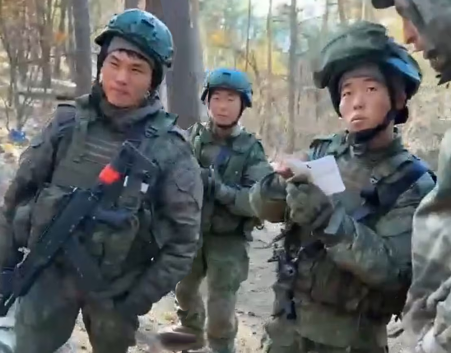When Joe Biden was Barack Obama’s vice president from 2009 to 2017, the Obama administration’s unofficial foreign policy motto was “lead from behind.” What that meant was fairly clear: build coalitions, avoid unilateral action at all costs, strengthen alliances, and encourage allies to be proactive rather than wait for the US to take the reins.
With respect to Russia, Obama famously advocated for a “reset.” That reset was thoroughly flouted when, in the wake of Ukraine’s Revolution of Dignity, Vladimir Putin invaded Crimea, annexed it, and proceeded to foment a war in eastern Ukraine that has continued to escalate to this day.
JOIN US ON TELEGRAM
Follow our coverage of the war on the @Kyivpost_official.
From that first invasion in 2014, Obama chose Biden to be his point man in Ukraine. According to Bob Woodward’s recently published book, “War,” which offers an insider’s account of the White House’s handling of Russia’s full-scale invasion since 2022, even Biden felt that Obama had underestimated Russia.
“That’s why we are here,” Biden is quoted by Woodward. “We f**ked it up. Barack [Obama] never took Putin seriously.”
“We did nothing. We gave Putin a license to continue!” Biden went on. “Well, I’m revoking his f**king license!”
After eight years of being vice president to an overly cautious Obama, one might imagine that Biden would have wanted to lead – tout court – rather than “lead from behind,” as his boss had done.

Fire Halts Diesel Production at One of Russia’s Largest Lukoil Refineries
In a sense, Biden was perfectly equipped to do so. Perhaps his greatest asset over the course of his political career as senator of Delaware and vice president had always been his gift for consensus-building. He was able to reach out across the aisle to Republicans who respected him (John McCain and Lindsey Graham come to mind) and hammer out a compromise.
On the global stage, this is what Biden intended to do as soon as he learned that Moscow was preparing to launch a shock-and-awe invasion of Ukraine. One of the administration’s first moves was to make classified information public in the hopes of building a solid coalition against Putin.
In all fairness, Biden succeeded in bringing the European and Asian democratic powers together to impose sanctions on Russia. Few expected countries like Germany and Italy, so reliant on cheap Russian gas, to get on board so readily.
Where Biden fell short was in the follow-up. Enforcing those sanctions was much more complicated than getting countries to agree to them.
When it became clear – despite the predictions of so many “Russia experts” in Washington – that Ukraine would not only not fall in 72 hours, but resist fiercely and force Moscow to pay a high price for its revanchist invasion, Biden faltered.
While Biden was vice president, the Obama administration rationalized its inaction by sustaining that Russia had “escalation dominance” – that is, no matter how many weapons the US poured into Ukraine, Russia would always be willing to up the ante.
This underlying fear of Russia’s perceived escalation dominance carried over into the Biden administration and plagued all its decisions. The result is a well-documented slow-drip of military aid that was always just enough to prevent Ukraine from being wiped out, but never enough to defeat Russia.
According to Woodward’s account, US intelligence reports that Russia was discussing the possibility of using a tactical nuclear weapon cowed the White House. The Americans threatened Moscow, communicating that if Russia were to use any type of nuclear weapon anywhere, the US would destroy the Russian army in Ukraine.
While that may sound terrifying to Westerners basking in their creature comforts, for most Ukrainians under missile attacks, or forced to leave cities reduced to rubble, or just worried about loved ones on the brutal front lines, a tactical nuke would have been a small price to pay for the complete destruction of the Russian army on Ukrainian soil.
But Biden’s “native hue of resolution,” to quote Hamlet, was “sicklied o’er with the pale cast of thought.” And that was Biden’s tragic flaw, at least from Kyiv’s perspective. He was never bold enough to commit to defeating Russia. Some Washington observers’ attribute his temerity to a misguided fear of chaos unleashed by the prospect of the Russian Federation’s disintegration.
Whatever the case, Biden can be said to have ensured Ukraine’s survival, without committing to Russia’s defeat. And one could also argue that in late 2022, after Ukraine’s successful counterattacks in the Kharkiv and Kherson regions, Washington had the opportunity to help Ukraine defeat a Russian army on the back foot.
Instead of leading from behind, Biden tried to lead from the pedestal of some imagined high ground. What he lacked was the energy and audacity to drag his own people and reluctant partners into action that he knew deep down was the right thing to do.
But of course, wallowing in nostalgia for counterfactual events is an exercise in futility. Russia is still pressing and still on the verge of collapse. And Ukraine is still defending and surviving into Donald Trump’s upcoming reign.
The views expressed in this opinion article are the author’s and not necessarily those of Kyiv Post.
You can also highlight the text and press Ctrl + Enter










